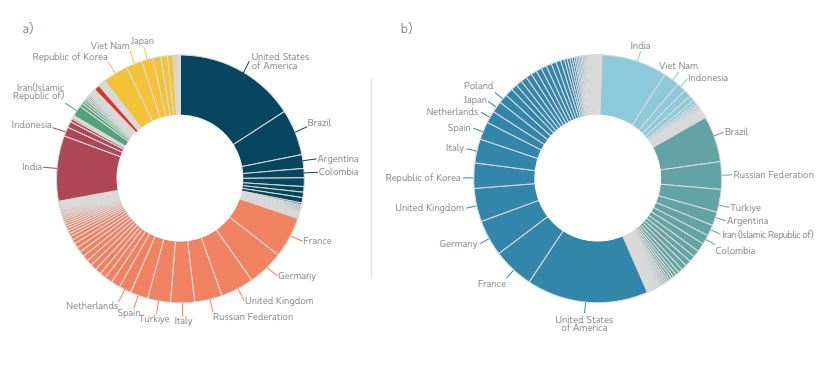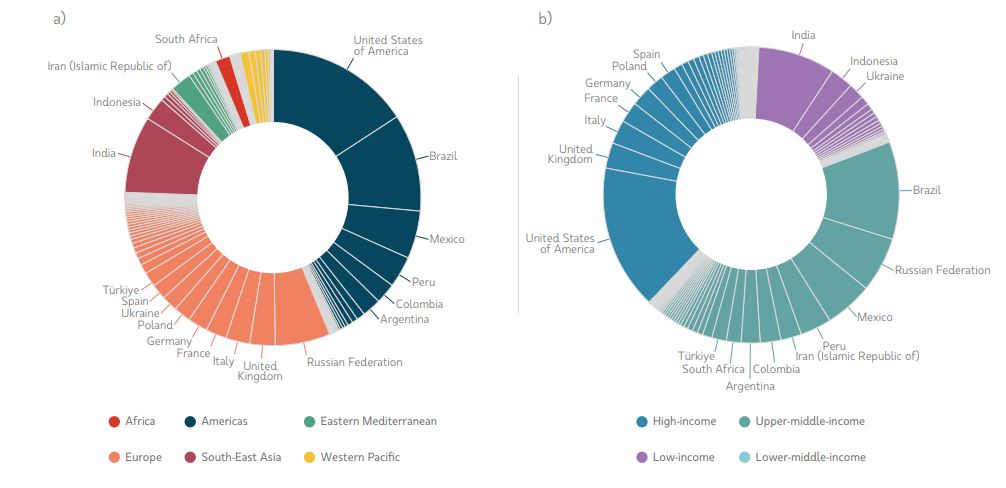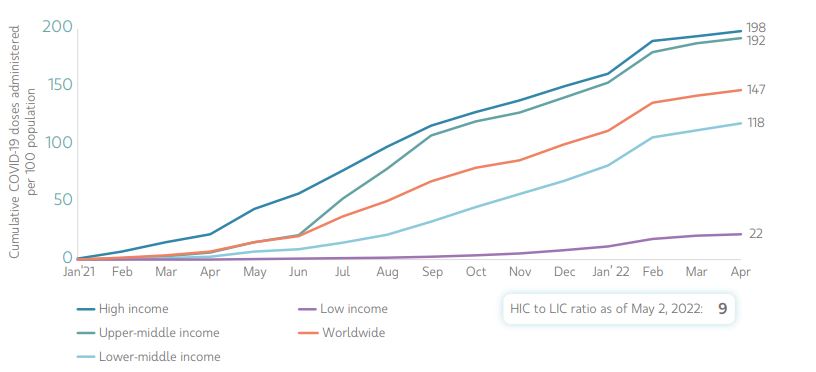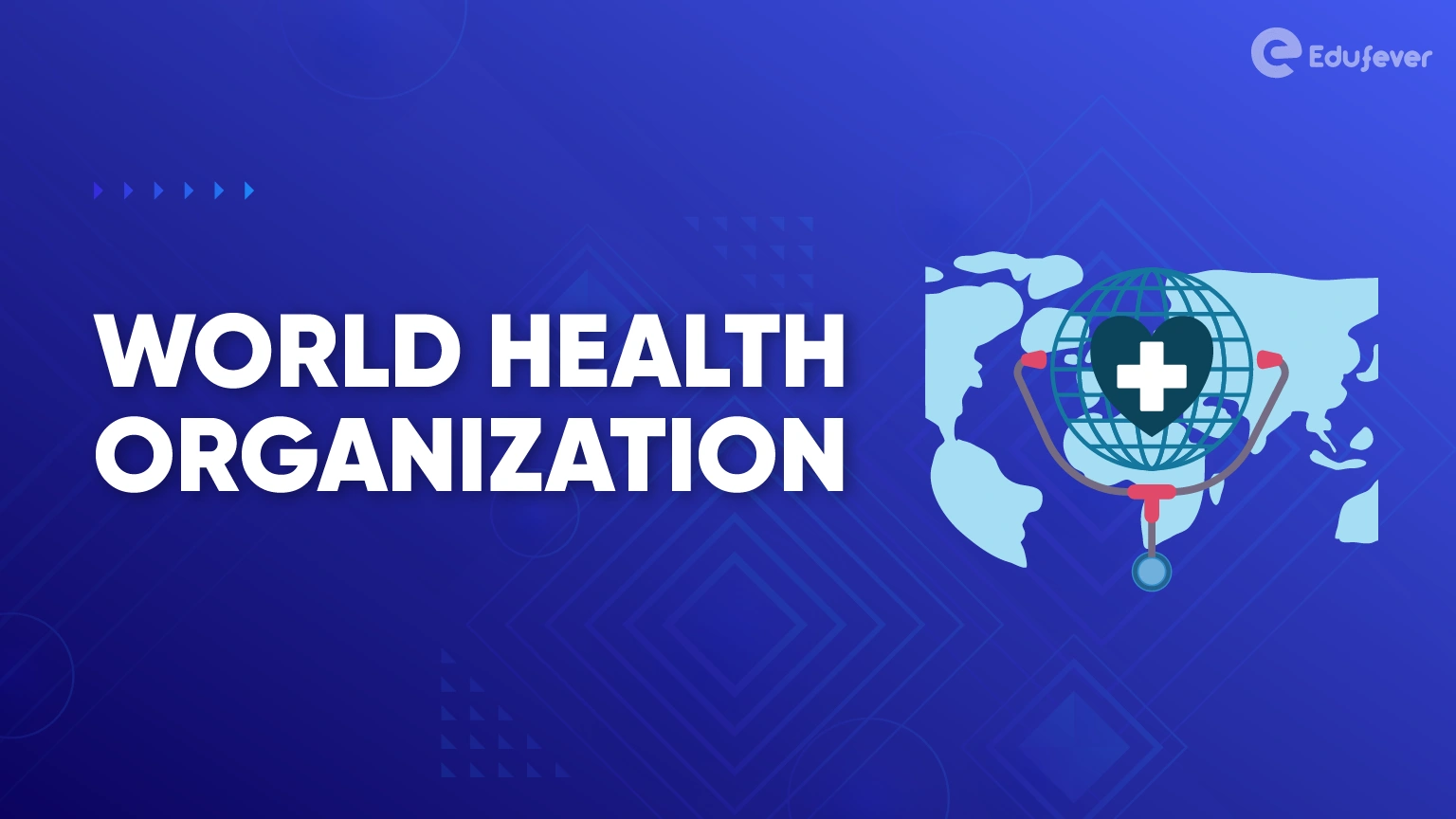WHO: The World Health Organization (WHO) is a specialized agency of the United Nations liable for international public health. Headquartered in Geneva, Switzerland, it has six regional offices and 150 field offices worldwide. The WHO Constitution states its primary objective as “the attainment by all peoples of the highest possible level of health”. It was established on 7 April 1948, which is celebrated as World Health Day. WHO built the assets, staff, and duties of the League of Nations’ Health Organization and the Office International d’Hygiène Publique, including the International Classification of Diseases (ICD). WHO Full form is World Health Organization.
World Health Organization are approved preferences cover dangerous diseases, especially HIV/AIDS, Ebola, COVID-19, malaria and tuberculosis; non-communicable conditions such as heart disease and cancer; healthy diet, nutrition, food security; occupational health. The WHO depends on donor donations from member states (assessed and voluntary) and private donors for funding. Its total approved budget for 2020–2021 is over $7.2 billion, of which the majority comes from voluntary contributions from member states.
WHO Overview
Here in this section, we are providing a short overview of WHO (World Health Organization). Let’s have a look.
| WHO | World Health Organization |
| Headquarters | Geneva, Switzerland |
| Type | United Nations specialized agency |
| Budget | $7.96 billion (2020–2021) |
| Legal Status | Active |
| Established | 7 April 1948 |
| Work | 150 |
| Official languages | Arabic, Chinese, English, French, Russian and Spanish |
| Head | Tedros Adhanom (Director-General) |
| Official Website | https://www.who.int/ |
[Page Index]
History of WHO
- The International Sanitary Conferences (ISC), the first of which was held on 23 June 1851, were a string of conferences that survived until 1938, about 87 years.
- The first conference held in Paris was almost solely concerned with cholera, which would remain the disease of primary concern for the ISC for most of the 19th century.
- A group of 14 conferences that served from 1851 to 1938, the International Sanitary Conferences worked to combat various conditions, including cholera, yellow fever, and the bubonic plague.
- The conferences were ineffective until the seventh, in 1892, when an International Sanitary Convention dealt with cholera.
- Five years later, a gathering for the plague continued signed.
- As a conclusion to the progress of the Conferences, the Pan-American Sanitary Bureau (1902) and the Office International d’Hygiène Publique (1907) was soon established.
- When the League of Nations was formed in 1920, they found the Health Organization of the League of Nations. Following World War II, the United Nations incorporated all the other health organizations to form the WHO.
WHO’s general commission involves
- Supporting universal healthcare.
- Monitoring public health risks.
- Coordinating responses to health emergencies.
- Promoting human health and the whole being.
The operational history of the WHO
| Dates | Particulars |
| 1947 | The WHO established an epidemiological information service via telex. |
| 1950 | A mass tuberculosis inoculation drive using the BCG vaccine gets underway. |
| 1955 | The malaria eradication programme was launched, although its objectives were later modified. (In most areas, the programme goals became control instead of eradication.) |
| 1958 | Viktor Zhdanov, Deputy Minister of Health for the USSR, called on the World Health Assembly to undertake a global initiative to eradicate smallpox, resulting in Resolution WHA11.54. |
| 1965 | The first report on diabetes mellitus and the creation of the International Agency for Research on Cancer. |
| 1988 | The Global Polio Eradication Initiative was established. |
Policies and objectives
The WHO (World Health Organization) fulfils this objective through its functions as defined in its Constitution.
- To act as the directing and corresponding authority on international health work.
- Specialised agencies, governmental health administrations, professional groups and other organisations may be deemed appropriate to establish and maintain effective collaboration with the United Nations.
- To assist Governments, upon request, in strengthening health services.
- To provide relevant technical assistance and, in emergencies, necessary aid upon the request or acceptance of Governments.
- To provide or assist in providing health services and facilities to particular groups, such as the peoples of trust territories, upon the request of the United Nations.
Roles in Public Health
- They are providing leadership on matters critical to the health and engaging in partnerships where joint action is needed.
- Shaping the research agenda and stimulating the generation, translation, and dissemination of valuable knowledge.
- Setting norms and standards and promoting and monitoring their implementation
- Articulating ethical and evidence-based policy options.
- Providing technical support, catalysing change, and building sustainable institutional capacity;
- Monitoring the health situation and assessing health trends.
- CRVS (civil registration and vital statistics) to provide monitoring of critical events (birth, death, wedding, divorce).
COVID-19 Cases
Cumulative confirmed COVID-19 cases, (a) by WHO region and (b) by World Bank income groups, as of 20 April 2022.

Deaths due to COVID-19
As per the latest update of 20 April 2022, over 6.2 million reported deaths had been attributed to COVID-19 since the pandemic’s start. The vast majority of those reported deaths––over 4.7 million––was in the WHO Americas and European regions.
Cumulative reported COVID-19 deaths, (a) by WHO region and (b) by World Bank income groups, as of 20 April 2022.

Cumulative COVID-19 vaccine doses administered per 100 population, by World Bank income groups and globally, as of 25 April 2022.

Regional offices of the WHO
Below have mentioned the List of the regional office of WHO. Let’s have a look.
| Region | Headquarters | Website |
| Africa | Brazzaville, Republic of the Congo | http://www.afro.who.int/ |
| Europe | Copenhagen, Denmark | https://www.euro.who.int/en |
| South-East Asia | New Delhi, India | https://www.who.int/southeastasia |
| Eastern Mediterranean | Cairo, Egypt | http://www.emro.who.int/ |
| Western Pacific | Manila, the Philippines | https://www.who.int/westernpacific |
| The Americas | Washington, D.C., United States | https://www.paho.org/en |
Frequently Asked Questions (FAQs)
What is the full form of WHO?
WHO’s full form is World Health Organization.
What is the working of WHO?
WHO works worldwide to promote health, keep the world safe, and serve the helpless. Our goal is to ensure that a billion more people have universal health coverage, protect a billion more people from health emergencies, and provide a further billion people with better health and well-being.
What are the 3 main goals of WHO?
The WHO framework for performance measurement consists of three intrinsic goals of health systems: health, responsiveness, and fairness in financing.
What is the role of WHO in India?
The World Health Organization is liable for providing leadership on international health matters, shaping the health research agenda, setting norms and prototypes, articulating evidence-based policy options, providing technical support to countries and monitoring and assessing health trends.
WHO established?
The WHO was established on 7 April 1948.

